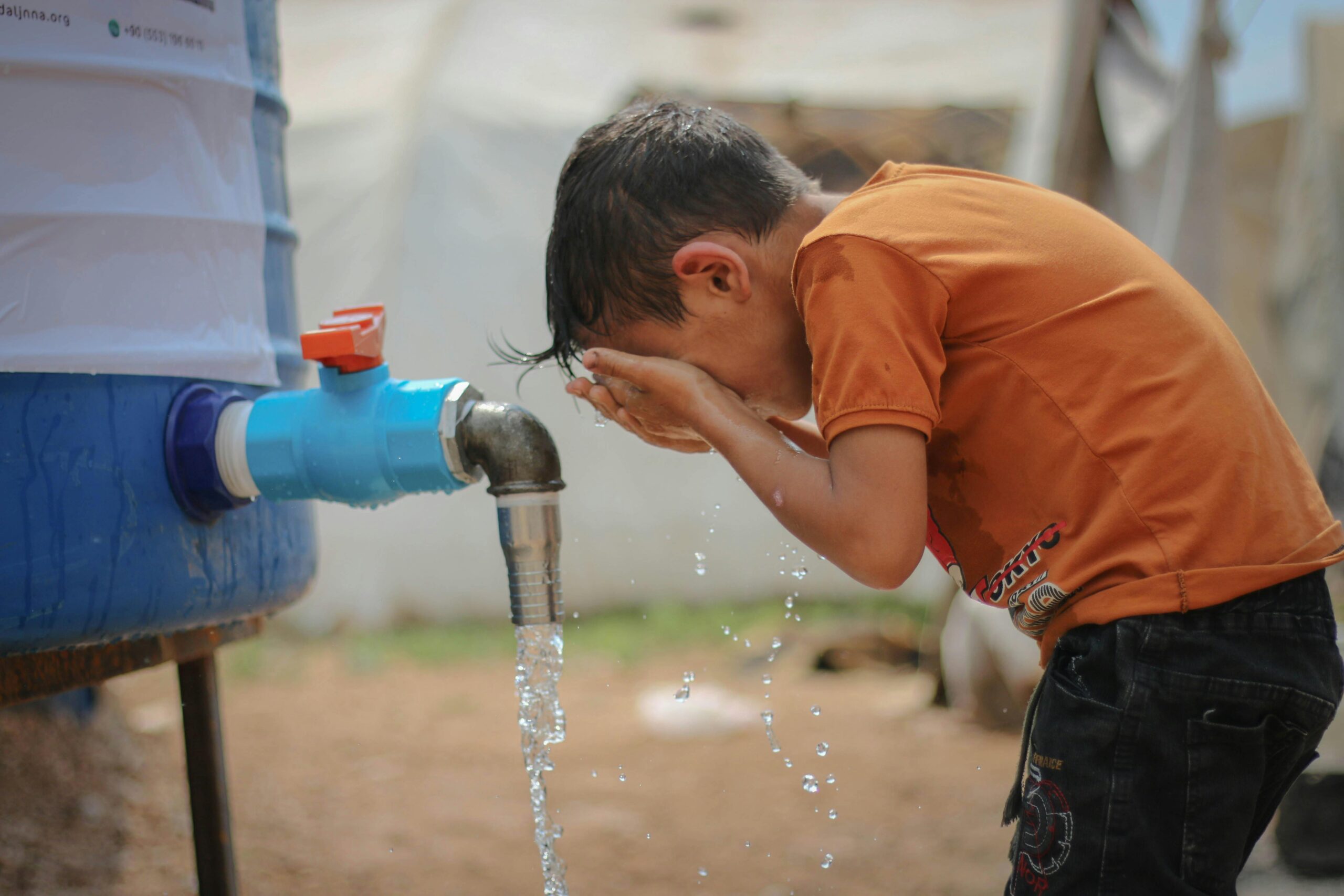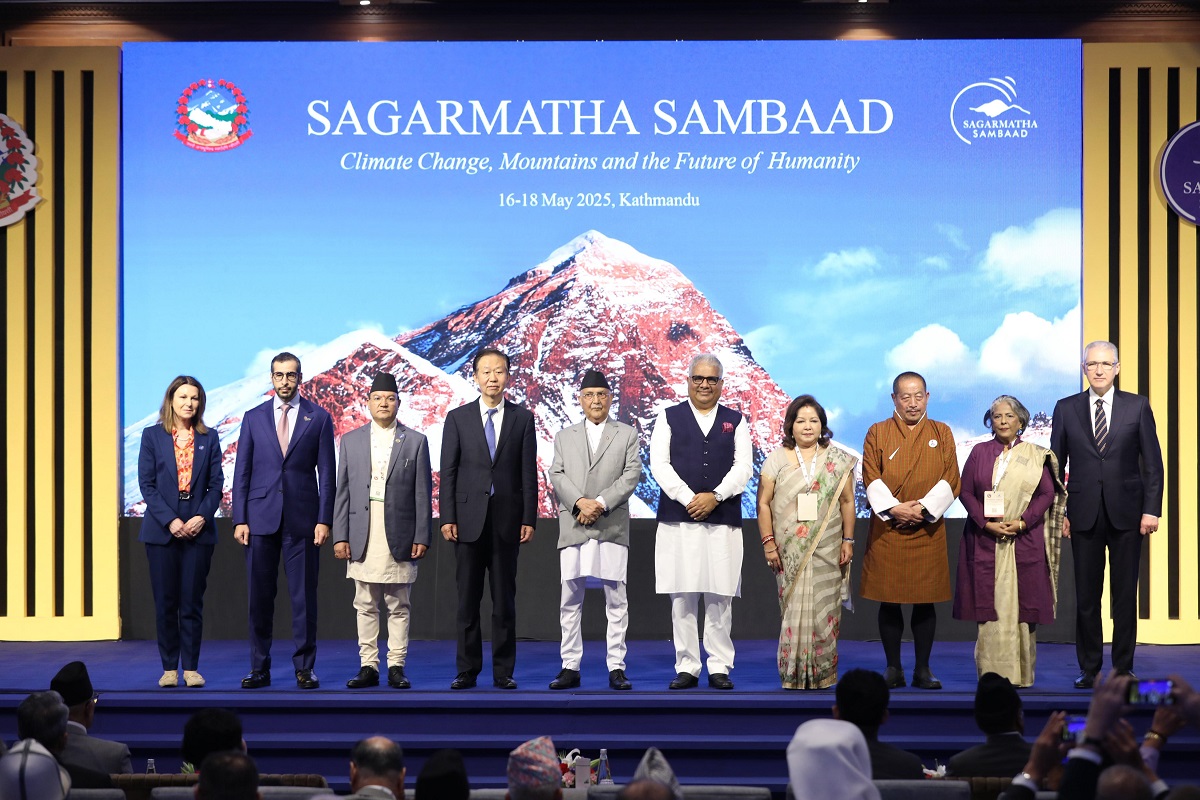The first ever ‘Faith of Kumbh and Climate Change Conclave’ was held at the sacred confluence of Ganga-Yamuna-Saraswati in Prayagraj. Organised by the Directorate of Environment of Uttar Pradesh and supported by the environment research organisation, iFOREST, the event brought together more than 1,000 participants and 30 speakers representing religious institutions, government bodies, civil society, and academia.
Held amid the growing global challenges of climate change and environmental degradation, the conclave aims to unite religious leaders, policymakers, and environmentalists to transform temples, shrines, and other religious sites into models of sustainability.
During the event, the Uttar Pradesh government launched the ‘Mahakumbh Declaration on Climate Change,’ outlining a comprehensive plan to make religious centers across the state eco-friendly. As the climate crisis intensifies, the declaration highlights key initiatives such as solar power, rainwater harvesting, and plastic-free pilgrimages, positioning faith-based communities as vital contributors to India’s green revolution.
Climate Change Concerns Intensify
At the inauguration of the event, Uttar Pradesh Chief Minister Yogi Adityanath pointed out the alarming rise in temperatures and the drying up of rivers due to unchecked greenhouse gas emissions. Drawing a parallel between river systems and the body’s blood vessels, he emphasized the need to protect natural watercourses. He warned that neglecting these vital resources could lead to their destruction, with serious consequences for both the environment and human health. The CM also highlighted the government’s extensive tree planting efforts, noting that 210 crore saplings had been planted across the state over eight years, with a survival rate of 70-80%.
Religious leaders also stressed the urgent need to save the rivers. “If we go on like this, we will neither have Ganga nor Yamuna by the next Maha Kumbh. If there is no climate action, the next Kumbh will be on mere sand, not river,” said Swami Chidanand Saraswati, president of Paramarth Niketan. He emphasized that while we have worshipped the creator for so long, we must not forget the creation itself. “We must preserve and protect it. If we don’t act, the Ganga and Yamuna will become mere stories. Our nation’s progress is tied to the progress of our environment,” he added.
Sachin S. Gunthe, a professor at the Centre for Atmospheric and Climate Sciences at IIT Madras, delivered a talk on ‘Sacred Rivers, Water Security, and Climate Change’. He highlighted the accelerating glacier melt due to climate change and its impact on river systems. He also noted shifts in monsoon patterns, explaining that studies indicate river basins with water deficits are now receiving more rainfall, while basins with excess water are experiencing less. “We even discovered microplastics in the snowpacks of Joshimath. Microplastics can significantly contribute to glacier melt,” he remarked.
‘Mahakumbh Declaration’: Vision for Eco-Friendly Religious Spaces
The Mahakumbh Declaration on Climate Change’ emphasized the significant potential of religious leaders and faith-based organizations to inspire climate actionand framing environmental protection as both a moral and spiritual responsibility. By embracing these roles, they can lead humanity toward a just and harmonious future. The declaration also presents a detailed plan to transform religious centers across Uttar Pradesh into environmentally sustainable spaces.
Key initiatives outlined in the Mahakumbh Declaration include:
- Solar Energy Adoption: Installing solar panels to harness renewable energy.
- Rainwater Harvesting: Implementing systems to collect and utilize rainwater.
- Waste Management: Encouraging recycling and banning single-use plastics.
- Green Landscaping: Developing green zones around sacred spaces to enhance biodiversity.
- Eco-Friendly Support for Religious Places: Assisting faith-based and spiritual organizations in adopting renewable energy, waste management, energy and water conservation, afforestation, and other eco-friendly technologies and practices.
- Environmental Education: Establishing climate and environmental education programs for religious centers, faith-based, and spiritual organizations across the state.
- Sustainable Religious Events: Promoting sustainable practices during religious events in the state.
Protecting the Sacred River: Beyond an Ecological Necessity
According to a report by The New Indian Express, the natural flow of the Ganga river is being disrupted by glacial retreat, erratic rainfall, and excessive groundwater extraction. Groundwater, which is especially crucial during the dry season, now contributes much less to the river’s flow. In fact, nearly 80% of the river’s flow during non-monsoon months is reliant on groundwater reserves. Over the past 40 years, there has been a noticeable decline in annual rainfall, particularly in the middle and lower Ganga basin, which has led to reduced river discharge and an increased risk of droughts.
TNIE report says rising global temperatures are exacerbating the challenges faced by the Ganga. Around 75% of Himalayan glaciers are retreating, shrinking by an average of 3.75 km over the past 15 years. Although this leads to a temporary increase in water flow, it poses a long-term threat of reducing the river to a mere trickle, particularly during dry periods. Additionally, extreme weather events have become more frequent, with unseasonal floods and prolonged droughts disrupting the river’s natural flow and complicating water management efforts.
The Ganga is also suffering from pollution caused by human activities. A recent report by the National Green Tribunal (NGT) highlighted high levels of fecal bacteria in the river at Prayagraj, particularly during the Mahakumbh event.
At the Faith of Kumbh and Climate Change Conclave, religious leaders and experts emphasized that the fate of the Ganga is not only an environmental concern, but also a spiritual and cultural crisis that impacts the identity of millions of Indians. Without immediate action, future generations may be deprived of experiencing the sanctity of a free-flowing, life-sustaining sacred river.






